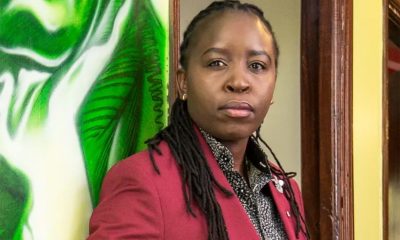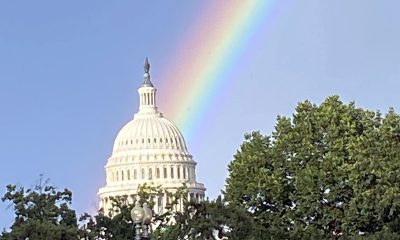Europe
More than 10K participate in anti-LGBTQ rights march in Turkey
Organizers called for protection of children from ‘LGBTQ terrorist propaganda agenda’
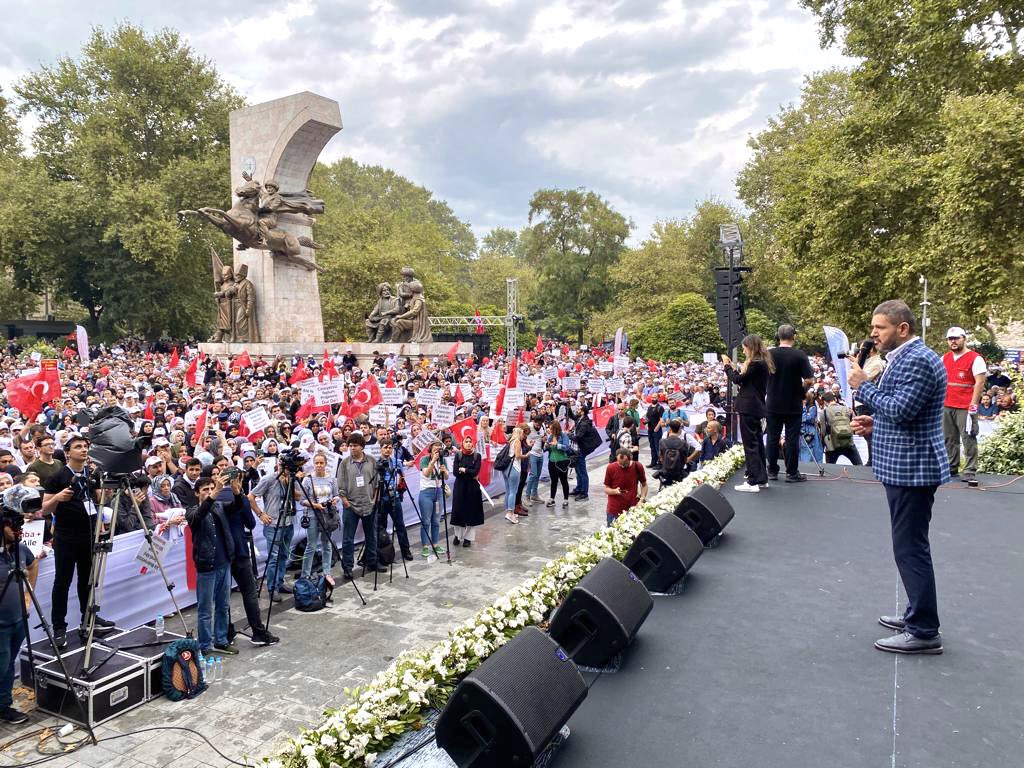
Despite heavy downpours mixed with light rain showers, more than 10,000 anti-LGBTQ protestors gathered in this ancient city and principal seaport of Turkey on Sunday, protesting what organizers said was to protect their children from the “LGBTQ terrorist propaganda agenda.”
Billed as the “Great Family Walk” lead organizer Kürşat Mican, speaking to the crowds gathered, demanded that the Turkish government ban all LGBTQ activities and shut down all LGBTQ organizations. The organizers were also demanding that Turkey’s parliament ban what they called LGBTQ “evil,” which they claimed pervades Netflix, social media, arts and sports in the country.
Gathering at Saraçhane Park, protestors carried signs with the slogan “protect your family and generation,” the speakers, in addition to Mican, told the crowd that they were taking action to combat the “LGBT lobby,” which they alleged “has become a global problem.”
In a tweet Monday, Mican wrote (translated from Turkish): “The fact that tens of thousands of people from all walks of life came together to put a stop to #LGBTdayatması (#LGBTimposition) and draw attention to the danger is an indication of how much our ‘Necip Nation’ values (a reference to Necip Fazil Kisakürek, Turkish poet, novelist, playwright, and Islamist ideologue) his family and generation. No lobby can bring this strong will to its knees, biiznillah! (Will of Allah.)
Aile olmazsa, millet olmaz!#LGBTdayatması ‘na dur demek için her görüşten onbinlerce insanın bir araya gelerek tehlikeye dikkat çekmesi ‘Necip Milletimizin’ ailesine ve nesline ne kadar değer verdiğinin göstergesidir. Bu güçlü iradeye hiçbir lobi diz çöktüremez biiznillah!🇹🇷 pic.twitter.com/PbTqUCaRmL
— Kürşat MİCAN (@kursatmican) September 19, 2022
The anti-LGBTQ rights were organized by Mican, Ersin Çelik and non-governmental organizations. The march, in which 150 NGOs participated, had a great impact organizers claimed.
Ersin Çelik, a writer for a conservative, Islamist Turkish daily newspaper, Yeni Şafak, has been fighting against LGBTQ rights and making efforts to what he has said on his social media accounts is to “protect young people and children from this trap,” called for the march on his social media account.
Mican and other organizers had also circulated a video prior to Sunday’s rally that showed clips from previously LGBTQ Pride parades, which was then also broadcast as a public service announcement by Turkish state media, prompting an angered response from the country’s LGBTQ advocacy groups and activists.
Others who supported the rally included a popular female Turkish writer known by her pseudonym of Tahteşşuûr who tweeted: “LGBT looking for children to recruit! God damn you. #LGBTdayatması (#LGBTimposition.)”
Saraçhane Parkı #LGBTdayatması’na karşı dolup taşıyor. pic.twitter.com/6gpw2TNnNO
— Özlem Doğan (@ozlemdogan_) September 18, 2022
This year, hundreds of LGBTQ people, allies, and supporters took to the streets of Istanbul this past June in defiance of the Turkish government’s ongoing 2014 ban of LGBTQ Pride parades and Pride Month festivities. Protestors violently clashed repeatedly with police and security forces in various neighborhoods located around the Bol Ahenk Sokak and other sections of the central downtown areas.
Government security forces arrested more than 373 people and the largest Turkish LGBTQ activist group, the Ankara-based Kaos GL, documented the arrests and clashes which occurred prior to the 5 p.m. planned parade kick-off in a series of Twitter posts.
Turkish Media Independent Media/News Outlet Ahval has reported that Turkey’s LGBTQ groups accuse the government of President Recep Tayyip Erdoğan of waging a “hate campaign” against them, encouraging violence against a vulnerable community.
Turkey has ranked second worst country in the European Union for LGBTQ people, scoring only above Azerbaijan, according the 2022 “Rainbow Europe” ranking compiled by Brussels-based ILGA-Europe.
Europe
Estonia’s marriage equality law takes effect
Statute is ‘a very important message from the government’
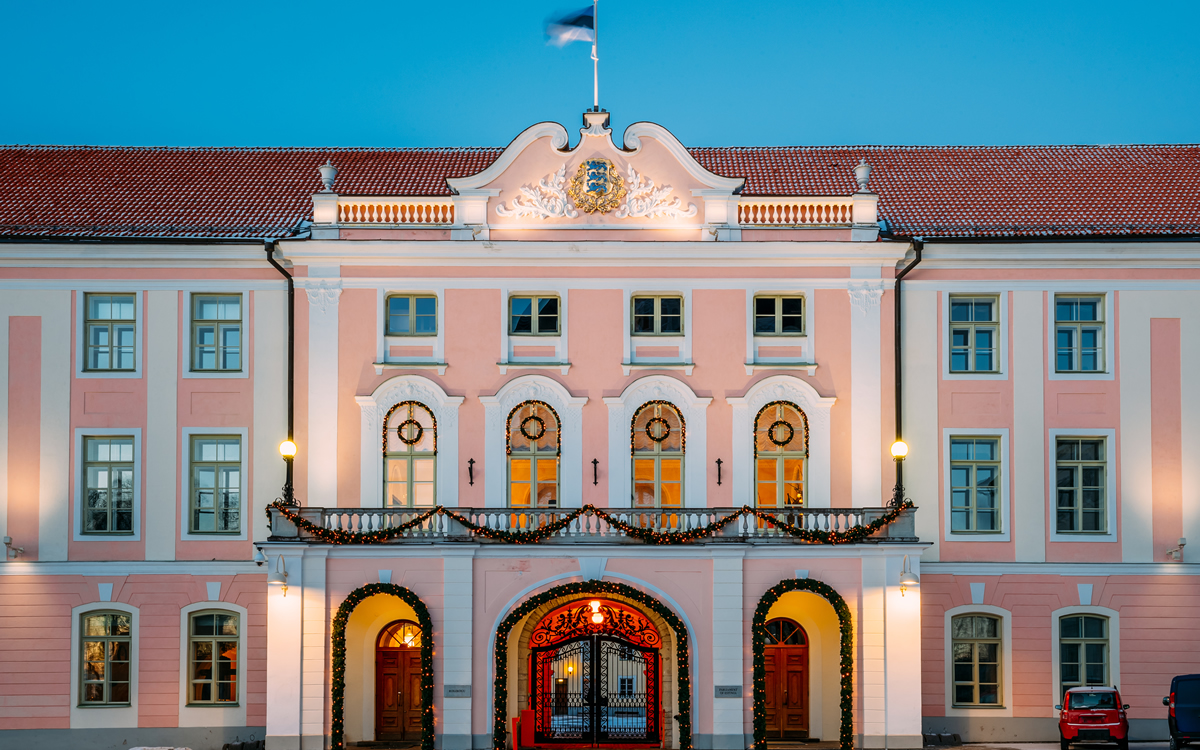
A law that extends marriage and adoption rights to same-sex couples in Estonia took effect on Monday.
Lawmakers last July approved the marriage equality bill by a 55-34 vote margin. Estonia is the first Baltic country and the first former Soviet republic to allow same-sex couples to legally marry.
“It’s an important moment that shows Estonia is a part of northern Europe,” Baltic Pride Project Manager Keio Soomelt told the Guardian newspaper. “For the LGBT+ community, it is a very important message from the government that says, finally, we are as equal as other couples; that we are valuable and entitled to the same services and have the same options.”
The country’s civil partnership law has been in place since 2013.
The Guardian reported same-sex couples could begin to apply for marriage licenses on Monday. Authorities are expected to process the first applications by Feb. 2.
Europe
Pope Francis says he is open to blessings for same-sex unions
Pontiff vehemently opposed marriage equality in native Argentina

Pope Francis has said he is open to the possibility that the Catholic Church would allow blessings for same-sex unions.
The Vatican’s Dicastery for the Doctrine of the Faith on Monday released a letter that Francis wrote to five cardinals who urged him to reaffirm church teaching on homosexuality ahead of this week’s Synod on Synodality, a meeting during which LGBTQ Catholics, women in the church and other issues will be discussed.
Francis wrote the letter on July 11.
The Associated Press reported Francis said “such (same-sex) blessings could be studied if they didn’t confuse the blessing with sacramental marriage.”
“This new step, outlined in a document released on Oct. 2 by the Vatican’s Dicastery for the Doctrine of the Faith, allows for pastoral ministers to administer such blessings on a case-by-case basis, advising that ‘pastoral prudence’ and ‘pastoral charity’ should guide any response to couples who request a blessing,” noted Francis DeBernardo, executive director of New Ways Ministry, a Maryland-based organization that ministers to LGBTQ Catholics, on Monday in a press release. “It also indicates that permitting such blessings cannot be institutionalized by diocesan regulations, perhaps a reference to some dioceses in Germany where blessings are already taking place with official and explicit permission. ‘The life of the church,’ the pope writes, ‘runs through many channels in addition to the standard ones,’ indicating that respecting diverse and particular situations must take precedence over church law.”
DeBernardo in the same press release said the “allowance for pastoral ministers to bless same-gender couples implies that the church does indeed recognize that holy love can exist between same-gender couples, and the love of these couples mirrors the love of God.”
“Those recognitions, while not completely what LGBTQ+ Catholics would want, are an enormous advance towards fuller and more comprehensive equality,” he said. “This statement is one big straw towards breaking the camel’s back of the marginalized treatment LGBTQ+ people experience in the church.”
The Vatican’s tone towards LGBTQ and intersex issues has softened since Francis assumed the papacy in 2013.
Francis has publicly endorsed civil unions for same-sex couples, and has said laws that criminalize homosexuality are “unjust.” Church teachings on homosexuality and gender identity have nevertheless not changed under Francis’ papacy.
Francis earlier this year told a newspaper in his native Argentina that gender ideology as “one of the most dangerous ideological colonizations” because “it blurs differences and the value of men and women.”
The pope was the archbishop of Buenos Aires when a law that extended marriage rights to same-sex couples in Argentina took effect in 2010. Francis was among those who vehemently opposed the marriage equality bill before then-President Cristina Fernández de Kirchner signed it.
Europe
Andorran prime minister comes out as gay
Xavier Espot Zamora spoke with country’s public broadcaster
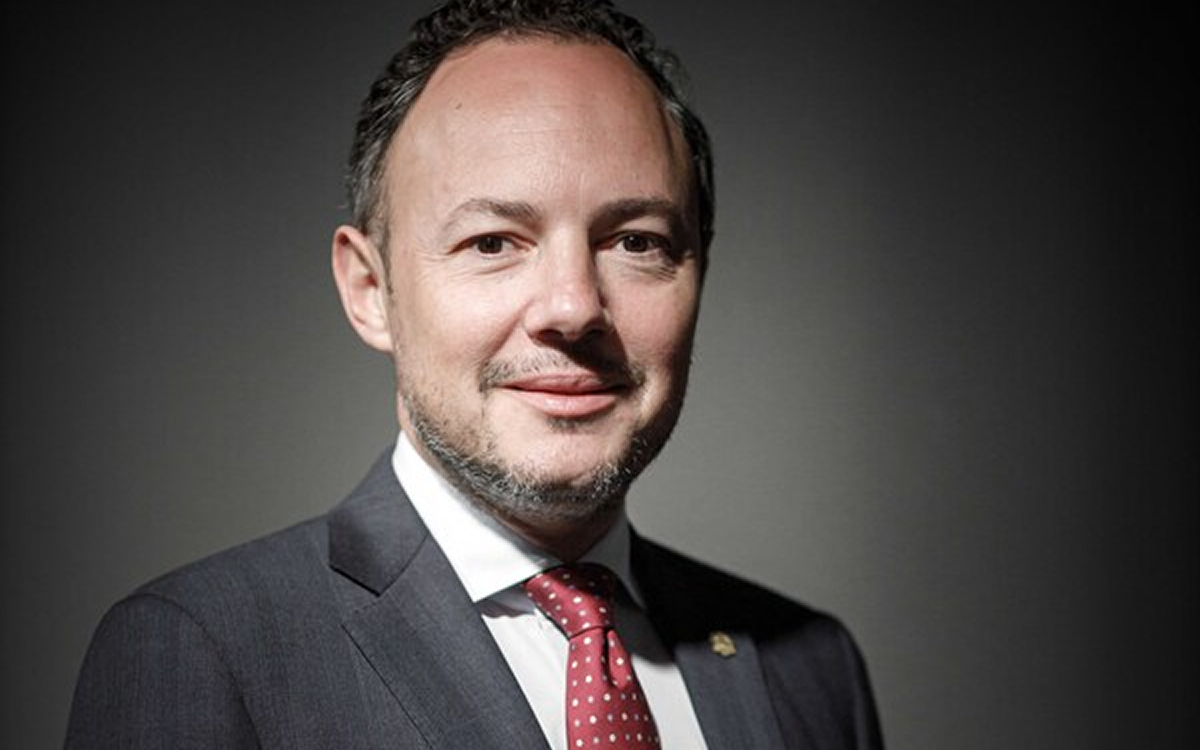
Andorran Prime Minister Xavier Espot Zamora has come out as gay.
“I’m gay. I’ve never hid it,” he said during an interview with Radio and Television of Andorra, the country’s public broadcaster, on Monday. “Now, if I’m not asked I don’t have to say it, in the sense that it doesn’t define the entirety of who I am and even less my personal politics, but at the same time I think it shouldn’t be a problem to express it. And if this helps many children, young people or teenagers who are going through a difficult time see that in the end, regardless of their condition or sexual orientation, you can prosper in this country and reach the highest magistracy, then I am happy to express it.”
Andorra is a small country known for its ski areas that is nestled between Spain and France in the Pyrenees.
Espot has been prime minister since 2019. The country’s lawmakers in 2022 extended marriage rights to same-sex couples.
The prime minister is one of a handful of heads of state and government who are openly gay or lesbian.
Latvian President Edgars Rinkēvičs took office in July.
Luxembourgish Prime Minister Xavier Bettel has been in office since 2013, while Ana Brnabić became Serbia’s prime minister in 2017. Irish Prime Minister Leo Varadkar is openly gay.
Deputy Belgian Prime Minister Petra De Sutter is a transgender woman.
Then-Icelandic Prime Minister Jóhanna Sigurðardóttir in 2009 became the world’s first openly LGBTQ head of government.

